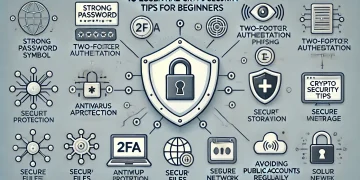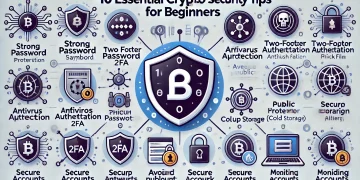The landscape of cryptocurrency mining continues to evolve rapidly, with cloud mining emerging as an alternative to traditional mining operations. As we progress through 2024, investors and cryptocurrency enthusiasts are increasingly questioning whether cloud mining remains a viable investment strategy. This comprehensive analysis explores the current state of cloud mining, its profitability, and factors to consider before investing in this mining approach.
Understanding Cloud Mining in 2024
Cloud mining represents a method of cryptocurrency mining that allows individuals to mine digital currencies without managing physical hardware. Instead, users rent mining power from large facilities that operate and maintain the mining equipment. This approach has gained attention as an accessible entry point into cryptocurrency mining, particularly for those who lack technical expertise or the capital to establish their own mining operations.
The concept has evolved significantly since its inception, with modern cloud mining services offering sophisticated platforms, transparent operations, and various cryptocurrency mining options. However, the industry has also faced its share of challenges, including concerns about legitimacy, profitability, and long-term sustainability.
The Economics of Cloud Mining
Understanding the financial aspects of cloud mining is crucial for potential investors. The profitability equation includes several variables, including contract costs, maintenance fees, and the current market conditions of the cryptocurrency being mined. In 2024, these factors have become increasingly complex due to market volatility and changing mining difficulties.
Mining contracts typically require an upfront investment and often include ongoing maintenance fees. These costs must be weighed against potential returns, which are influenced by cryptocurrency prices, mining difficulty, and network hash rates. The break-even period for cloud mining investments has become a critical consideration, particularly in the current market environment.
Advantages of Cloud Mining
Cloud mining offers several compelling benefits that continue to attract investors in 2024. The elimination of hardware management responsibilities represents a significant advantage, as users don’t need to worry about equipment maintenance, electricity costs, or technical configurations. This accessibility has made cryptocurrency mining available to a broader audience.
The reduced initial investment compared to establishing a physical mining operation presents another attractive aspect of cloud mining. Additionally, cloud mining operations often benefit from economies of scale, potentially offering better efficiency than small-scale individual mining setups. These advantages must be carefully weighed against the associated risks and costs.
Risks and Challenges
Despite its benefits, cloud mining faces several significant challenges in 2024. The industry has been plagued by fraudulent schemes and unreliable service providers, making it crucial for investors to conduct thorough due diligence. Contract terms can be complex and sometimes misleading, potentially hiding unfavorable conditions that affect profitability.
Market volatility presents another substantial risk, as prolonged cryptocurrency price downturns can significantly impact mining profitability. Additionally, increasing mining difficulty and competition from large-scale mining operations can affect returns, potentially making some cloud mining contracts unprofitable over time.
Technological Advancements in Cloud Mining
The cloud mining sector has witnessed significant technological improvements in 2024. Modern platforms offer advanced monitoring tools, improved transparency through blockchain integration, and more efficient mining algorithms. These technological advancements have helped address some previous concerns about cloud mining operations.
Smart contract integration and automated profit switching mechanisms have become more common, allowing for more efficient mining operations. These improvements have helped enhance the reliability and profitability of cloud mining services, though the impact varies significantly between providers.
Environmental Considerations
Environmental concerns have become increasingly important in the cryptocurrency mining industry. Many cloud mining operations are now focusing on sustainable energy sources and improved energy efficiency. This shift towards environmental responsibility has become a significant factor for investors considering cloud mining investments in 2024.
Some cloud mining providers have implemented green mining initiatives, using renewable energy sources and implementing energy-efficient mining practices. These environmental considerations can affect both the operational costs and the social responsibility aspect of cloud mining investments.
Choosing a Cloud Mining Provider
Selecting a reliable cloud mining provider has become crucial for success in this space. Legitimate providers typically offer transparent operations, clear contract terms, and verifiable mining facilities. Potential investors should carefully evaluate factors such as company reputation, contract terms, pricing structures, and customer support quality.
Due diligence should include reviewing user testimonials, analyzing the provider’s track record, and understanding the complete fee structure. The provider’s mining infrastructure and technology implementation also play crucial roles in determining the potential success of a cloud mining investment.
Profitability Analysis and ROI
Calculating potential returns from cloud mining requires careful consideration of multiple factors. Current cryptocurrency prices, mining difficulty trends, and contract costs all play crucial roles in determining profitability. In 2024, these calculations have become more complex due to market volatility and increasing competition in the mining space.
Investors must consider not only the immediate returns but also the long-term viability of their cloud mining investments. This includes analyzing historical data, understanding difficulty adjustment mechanisms, and considering potential market scenarios that could affect profitability.
Future Outlook
The future of cloud mining in 2024 and beyond depends on several factors, including technological advancement, regulatory developments, and market conditions. The industry continues to evolve, with new business models and improved operational efficiency potentially offering better value propositions for investors.
Emerging trends suggest a move towards more transparent and regulated cloud mining services, potentially providing greater security for investors. However, the success of cloud mining investments will continue to depend heavily on market conditions and operational efficiency.
Frequently Asked Questions
What minimum investment is typically required for cloud mining in 2024? Initial investments vary significantly between providers, ranging from a few hundred to several thousand dollars. However, most reputable providers require a minimum investment of around $500-1000 to start cloud mining with meaningful returns potential.
How long does it typically take to break even on a cloud mining investment? Break-even periods vary based on market conditions, contract terms, and mining difficulty. In 2024’s market conditions, typical break-even periods range from 6-18 months, though this can vary significantly based on cryptocurrency price movements and contract efficiency.
What are the main risks associated with cloud mining? Key risks include provider reliability, contract terms complexity, market volatility, increasing mining difficulty, and potential regulatory changes. Fraudulent operators and misleading contracts also present significant risks in the cloud mining space.
How can investors verify the legitimacy of a cloud mining provider? Investors should check provider reputation, verify physical mining facilities, review user testimonials, analyze contract terms thoroughly, and ensure the provider has a proven track record of payouts and transparent operations.
What impact does cryptocurrency price volatility have on cloud mining profitability? Price volatility can significantly affect mining profitability. Sharp price decreases can extend break-even periods or make contracts unprofitable, while price increases can lead to higher returns than initially projected.
Reference disclaimer: As my knowledge cutoff date is April 2024, market conditions, mining difficulty, and provider offerings may have changed. Readers should verify current market conditions and conduct thorough research before making investment decisions in cloud mining.






























